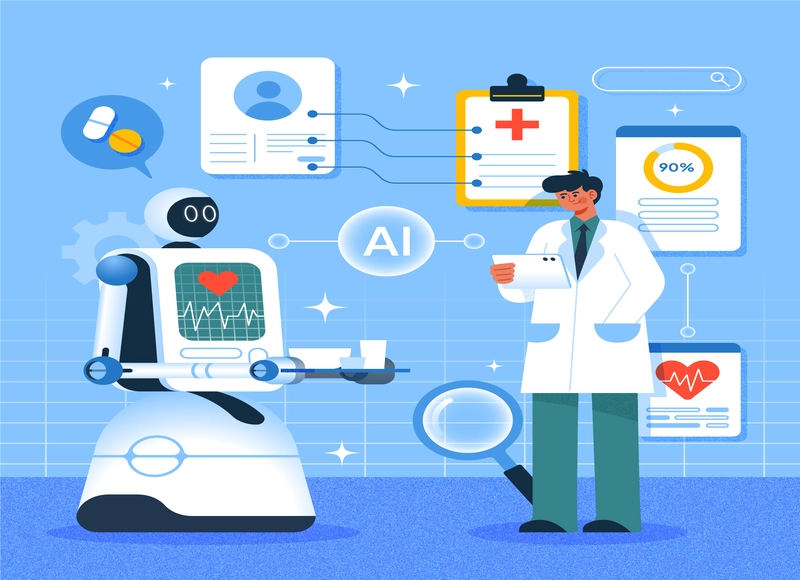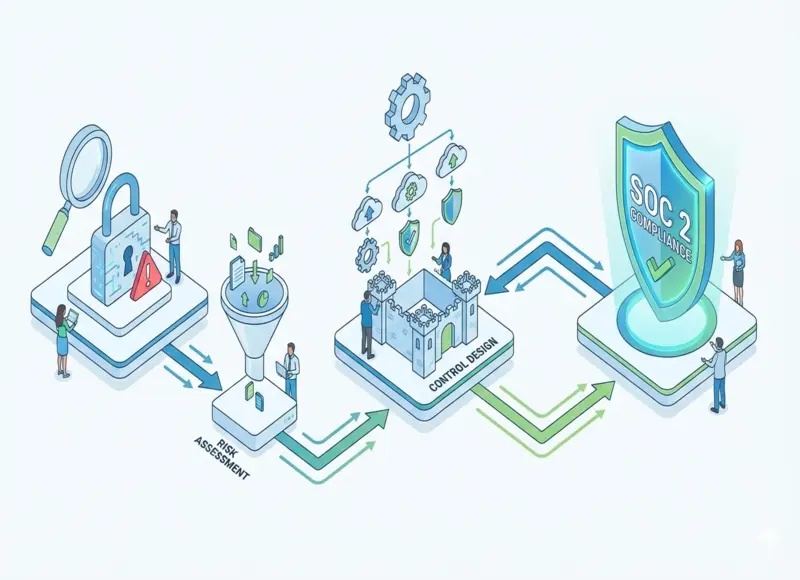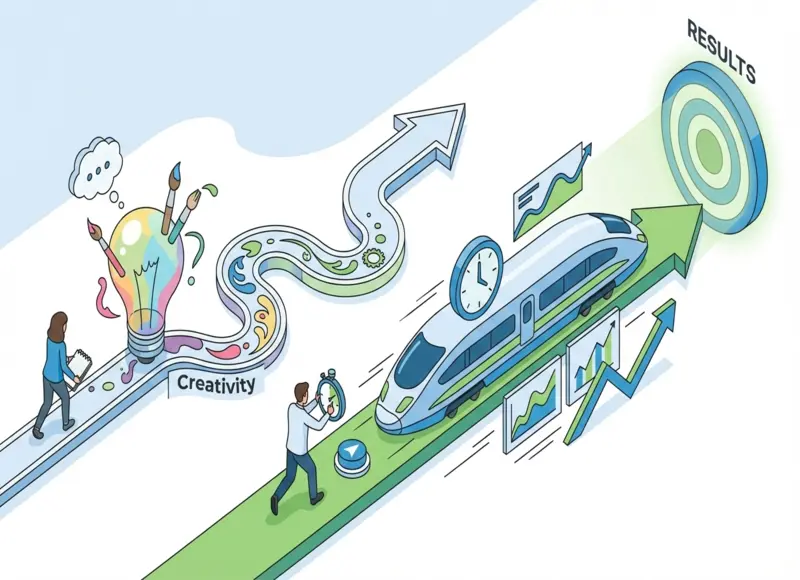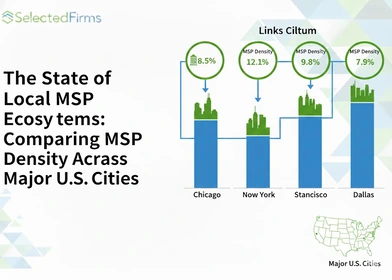Table of Contents
Dive into the future of healthcare with our cutting-edge software development solutions, where artificial intelligence meets unmatched precision and innovation.

Artificial intelligence (AI) has become a powerful force that is changing many industries, including healthcare, in recent years. The use of AI in healthcare software development is speeding up innovation like never before, making clinical workflows more efficient, personalizing patient care, and making operations more efficient. AI is changing the digital healthcare ecosystem in a big way, from predictive analytics and automated diagnostics to smart documentation and virtual care platforms. This article talks about how AI is changing the way healthcare software is made, focusing on the patient management system, EMR software, and AI medical scribe technologies.
The Evolving Landscape of Healthcare Software
In the past, healthcare software was made to be a digital version of paper-based systems. But these early systems were often hard to use, clunky, and not connected to each other. As AI gets better, modern healthcare apps are getting smarter, more flexible, and better at imitating human intelligence.
Developers are now using machine learning, natural language processing (NLP), and computer vision to make software that not only collects data but also understands it and takes action based on it. The current revolution in healthcare software development is marked by a move from storing data in a fixed way to using intelligent systems to make decisions.
AI and the Modern Patient Management System
The patient management system is one of the most important places where AI is having a real effect. These systems are very important for healthcare providers because they help them keep track of appointments, manage patient records, make billing easier, and coordinate care between departments. AI makes these abilities much better in a number of important ways:
1. Predictive Scheduling and No-Show Reduction
Artificial intelligence systems analyze historical data and patient behavior to calculate the likelihood of missed appointments. These data can be used by systems to automatically send targeted reminders or offer rescheduling choices, which can improve clinic workflows and significantly lower no-show rates.
2. Automated Triage and Virtual Assistants
NLP and decision-tree models are combined in AI-powered patient management applications to do early assessments and triage. When a patient discusses their symptoms on an online portal, for example, the system can recommend the appropriate department or degree of urgency for treatment.
3. Real-Time Analytics for Making Operations More Efficient
Artificial Intelligence monitors staff performance, appointment wait times, and the usage of resources. This makes it easier for administrators to decide how best to employ resources in real time, which increases productivity for both staff and patients.
The Power of AI and EMR Software
EMR software (Electronic medical record) is now the most important part of digital health infrastructure. It keeps track of things like a patient's medical history, test results, prescriptions, and treatment plans. With the rise of AI, EMRs are changing from being passive data storage systems to active partners in clinical work.
1. Clinical Decision Support
AI-powered EMR software can help doctors figure out what's wrong with patients by looking at a lot of structured and unstructured data. It finds patterns that a human doctor might not see right away and suggests possible diagnoses, treatment options, or drug interactions.
2. Smart Paperwork
One of the worst things about using EMRs is that they make you tired of writing. Doctors often spend hours typing up notes, which can make them tired. The AI medical scribe is one of the technologies that AI uses to solve this problem. It automatically records and documents patient encounters.
The Rise of the AI Medical Scribe
The AI medical scribe changes the way clinical documents are made. This tool listens to doctor-patient conversations and turns them into structured clinical notes that can be directly fed into EMR systems. It does this by using voice recognition and natural language processing.
The advantages of AI medical scribes are:
- Time savings: More time spent caring for patients results in less time spent on paperwork.
- Increased Accuracy: Reduces human error and ensures that crucial information is not overlooked.
- Improved Patient Interaction: By speaking with patients face-to-face rather than through screens, doctors can foster trust and facilitate conversation.
For instance, rather than typing out a SOAP note (Subjective, Objective, Assessment, and Plan) by hand, a doctor can utilize an AI scribe to listen in and write it out.
How AI Enhances Healthcare Software Development
AI is changing the way things are developed, not just the tools and platforms used. This is how:
1. Faster Prototyping with AI Algorithms
Artificial Intelligence is being used by developers to test software features and model user interaction. This ensures that the UX design is improved by simulating the likely behavior of users and expedites the prototype phase.
2. Customizable and Adaptive Interfaces
AI enables software to adapt over time to each user's demands. AI optimizes the experience by tailoring it to each user, be they a front desk employee in need of user-friendly scheduling tools or an expert in need of particular data sets.
3. Enhanced Data Security
AI-based anomaly detection helps keep private patient information safe. Machine learning models can quickly find strange access patterns or possible breaches, which lets security teams act right away.
4. Interoperability and Integration
AI helps connect data silos in different healthcare systems. AI makes it possible for EMR systems, laboratory platforms, billing software, and other digital tools to work together without any problems by using smart data mapping and understanding the context.
Challenges and Considerations
Even though AI has a lot of potential, adding it to healthcare software development isn't easy:
Following the rules and protecting data privacy: Developers must make sure that AI apps follow HIPAA and other global rules about protecting data.
Bias and Ethical Concerns: AI models that are trained on biased or incomplete datasets may make health disparities worse. Testing and validating thoroughly are very important.
Physician Acceptance: For AI tools like the AI medical scribe to be widely used, they need to be easy to use and reliable, and they shouldn't make clinical workflows more complicated.
What AI will do in healthcare software in the future
In the future, we can expect AI to become even more important in healthcare software. New things that are coming up include real-time clinical AI assistants that give live suggestions during surgeries or other complicated procedures.
Emotion-detection algorithms that use speech and facial expression analysis to help with mental health evaluations.
Generative AI models that make personalized health education materials based on each patient's records.
Future iterations of AI medical scribes are also likely to handle many languages and read patients' emotions. They may even integrate with telehealth platforms to fully automate the recording of virtual care from beginning to end.
Conclusion
AI is not just a futuristic idea in healthcare anymore; it's a reality right now that is changing how we develop, use, and benefit from healthcare software. AI is helping providers work more efficiently, make better decisions, and give patients better outcomes. This is true whether it's through a smart patient management system, intelligent EMR software, or the revolutionary AI medical scribe.
The use of AI in the creation of healthcare software will evolve along with technology. It will challenge the existing status quo, provide solutions to pressing issues, and transform the future of healthcare.
Recent Blogs
Scaling Smarter: How Property Management Software Simplifies Rental Management
-
10 Feb 2026
-
6 Min
-
34
The State of Local MSP Ecosystems: Comparing MSP Density Across Major U.S. Cities
-
06 Feb 2026
-
7 Min
-
260









